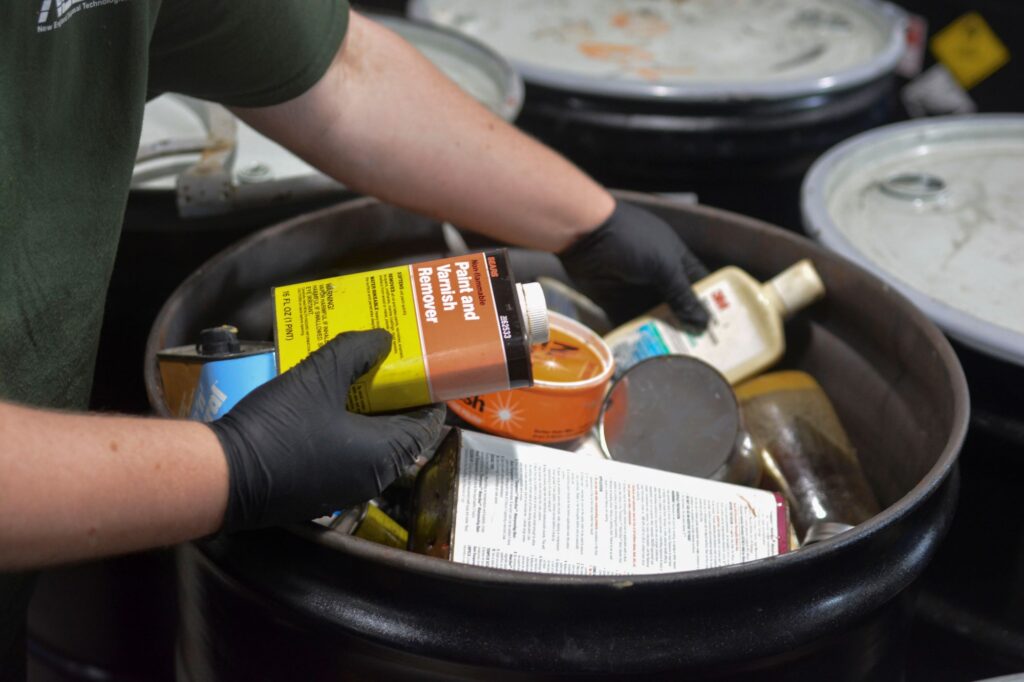Household chemical solvents are the type of product that you might not know you have, but as soon as you open or use it, it becomes very clear. Found in an array of household products, from cleaners and polishes to paint thinners and cosmetics, these chemicals produce fumes that are health risks and can pose fire risks when stored. If you’ve got some household solvents you need to get rid of, learn the risks and how to dispose of them below.
Common Types of Household Solvents
Household solvents are a class of chemicals that are used to dissolve (such as in cleaning products) or disperse (as an additive to other chemicals). They are often petroleum-derived, pose a health risk, and cannot be disposed of at home. Some examples you might find in a household include:
- Paint Thinners and Strippers: Mostly pure solvents, paint thinner and paint stripper products pose a health and fire risk. They are also found in oil-based paints and stains.
- Polish and Finishes: These include cleaning and staining solutions, such as furniture cleaner, shoe polish, and furniture or wood polish.
- Drycleaning Fluids: If you have at-home drycleaning products or appliances, they may contain toxic drycleaning chemicals.
- Cosmetic Products: Acetone is commonly found in nail polish removers, and other beauty products and removers can contain similar chemicals.
- Cleaning Products: Certain types of corrosive cleaning products can contain solvents to dissolve oils and grease. Carpet cleaners often contain high amounts.
Risks of Volatile Organic Compounds
Many of these solvents are types that can release dangerous gases including aromatic hydrocarbon solvents such as benzene, and halogenated organic solvents such as methylene chloride (such as what you’d find in contaminated motor oil). This class of gases is known as volatile organic compounds, or VOCs for short. These gases have both short- and long-term health effects when inhaled and, in high enough concentrations, can pose a fire hazard if near sparks or open flames.
Handling & Disposing of Household Solvents
Start by reading the labels of these products to get a better understanding of the risks and proper handling and storage. They should be used in a well-ventilated area and may require a mask for proper safety. They should be stored in airtight containers away from sources of heat, flame, and sparks. Generally speaking, these types of chemicals should not be poured down the drain or into the trash due to their fire and fume hazards.
Without being able to dispose of it at home, you should look to give away solvent-containing products or check to see if your local municipality has a collection service or event you can use. If you’re in the New England area, consider coming to one of NEDT’s Household Hazardous Products Collection Centers. We have multiple locations in MA to make disposing of household hazardous waste easier and a pick-up service for those who can’t make it in. Contact us today to learn more, or call us at 1.866.769.1621!



Leave a Reply